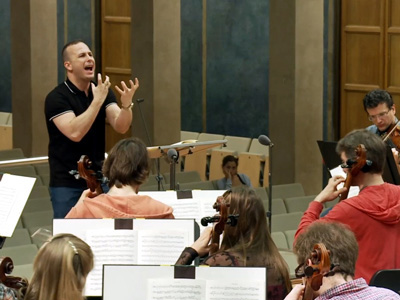By: Frank Cadenhead
The new Philharmonie de Paris, open now one year and three months, has had a remarkable success by any measure, particularly with winning new audiences and attracting old audiences to the new locale. It is now one of Europe’s principle venues and the whirl of talent on stage practically every night gives it a permanent festival atmosphere.

A vote of the French Council of Ministers last Thursday modifying the age limit for the Philharmonie director is a strong clue that general director, Laurent Bayle, who guided the transformation of the Cité de la Musique complex during the construction of the new hall, will continue. Bayle was approaching the civil service retirement age of 65 in June.
The polemics over the cost overruns and its location in a rough neighborhood now seem a distant memory. The hall is routinely full for the Orchestre de Paris concerts and other resident groups, the Paris Chamber Orchestra, William Christie’s Les Arts Florissants and the Ensemble Intercontemporian. Visiting orchestras and ensembles are a weekly occurrence and the Los Angeles Philharmonic with Gustavo Dudamel, for example, had a high profile weekend on the 19th and 20th of March. Tonight, it is Schubert’s Winterreise with baritone Matthias Goerne and pianist Markus Hinterhauser featuring William Kentridge’s scenography.
After the opening in January of 2015, the acclaim was instantaneous. While the warmth and vibrancy of the acoustics were there from the start, some did note that sometimes the soloists in a concert seemed vaguely underpowered. The hall was closed in July and August of that year to polish details of the hall, including minor improvements in the acoustics and finishing interior details in the hall. The new panoramic restaurant is now open and the myriad of activities for children and others of all ages in the three halls at the Cité de la Musique complex make it a constant beehive of activity.

Added Note:
Today, March 30, the Council of Ministers of the French government did appoint Laurent Bayle to lead the Cité de la Musique for another five year term. He has been leader of the Cité de la Musique complex, with the new Philharmonie as a major part, situated across the plaza from Paris’ Conservatory, since 2001. He will work with a new president of the Administrative Council of the complex, Patricia Barbizet. She has lead companies like Artemis and Christie’s and will replace Mr. Bayle, who had also occupied that chair since 2006.
